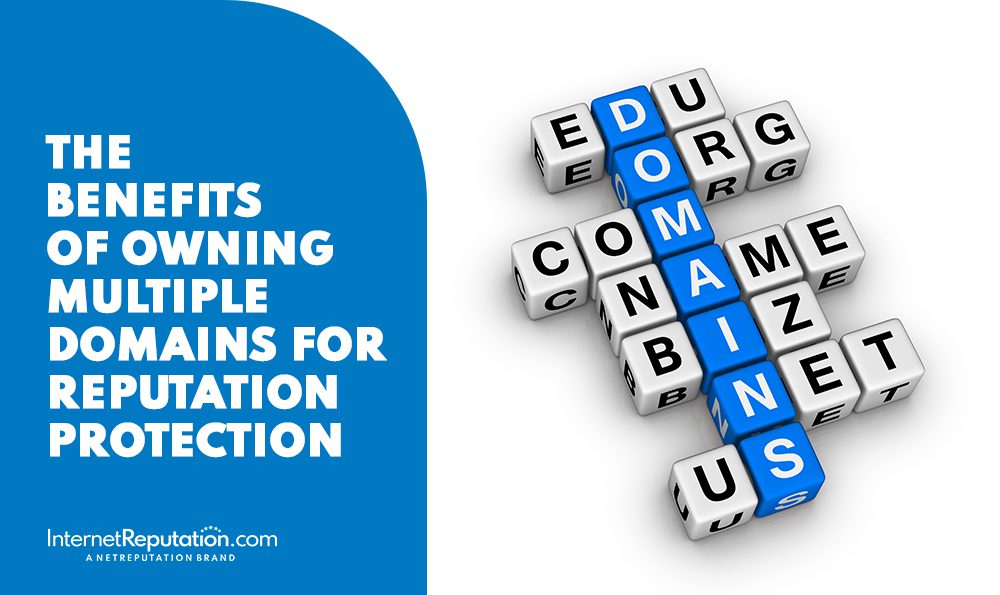Reputation Management Secrets: Demystifying an Intricate World

Do you want to take control of your online reputation?
It’s time to demystify the intricate world of reputation management.
This article will help you understand management secrets by answering what reputation is, how to build and maintain a positive reputation, and the best strategies for managing negative reputations.
You’ll also learn about various reputation-related tools and resources that can help you take control of your digital presence.
Reputation Management Secrets – What you will learn with Internet Reputation?
Uncover the hidden gems of reputation management in our revealing exposé!
Dive into the secrets that unravel the complexities of shaping and safeguarding your digital reputation. Don’t miss this opportunity to master managing your online presence—unlock the doors to success with our article on Internet Reputation.
Explore the intricate world of reputation management and pave the way for a more substantial, influential online presence!
Defining Reputation
You can define reputation as the opinion that others have of you. However, reputation is a complex concept that can be interpreted differently. It’s a combination of both your current performance and your past relationships.
Your reputation is based on people’s experiences with you, the stories they hear, and the impressions they form. It’s an integral part of your brand identity and is essential for success. Reputation can be both positive and negative.
It can be built up over time or lost with one mistake. It’s a powerful tool that must be nurtured and carefully managed to be effective. With proper management, reputation can be a powerful asset that can bring success.
Building a Reputation
Once you understand the concept of reputation, one of the next reputation management secrets is how to start building it. You’ll need to invest in a comprehensive reputation management strategy to do that.
This strategy should include creating content with positive messaging, responding quickly to customer complaints, and monitoring your online presence to identify potential problems.
It’s also important to be proactive and use reputation-building techniques like networking, developing partnerships, and leveraging positive customer reviews. A clear and consistent message should be used across all channels, and a transparent relationship should be cultivated with customers.
Lastly, stay on top of emerging trends and technologies, which can significantly impact your reputation.
Maintaining a Positive Reputation
One of the other reputation management secrets is regularly monitoring your online presence to ensure your reputation is always positive. To maintain a positive reputation, it’s essential to:
- Proactively seek out any negative reviews or comments about your brand and address them promptly
- Take the time to respond to complaints in a courteous and professional manner
- Keep a record of the feedback and use it to improve future interactions
- Develop a reputation management strategy to address any potential issues before they arise
- Establish a feedback loop to stay informed of customer sentiment
- Monitor your online presence for any signs of malicious or false reviews
By following these steps, you can ensure that your company’s reputation remains positive.
Develop a plan, stick to it, and address any negative reviews quickly and professionally. You can maintain a positive online presence with careful monitoring and proactive strategies.
Reputation-Building Strategies – Important Reputation Management Secrets You Should Know
Having a positive reputation is essential for modern businesses. But how do you go about building one?
First, it can be done by defining reputation. This involves understanding how your business is perceived by others, including customers, competitors, and the general public.
Next, it’s essential to monitor your online presence. This means monitoring social media platforms, review websites, and other online channels where people may discuss or review your business.
Finally, cultivating reviews from customers is crucial. Encourage satisfied customers to leave positive reviews on platforms like Google, Yelp, or TripAdvisor. This helps build a positive reputation and provides social proof for potential customers.
Define Reputation
Now that you understand reputation management, let’s discuss how to define reputation and the strategies you can use to build a positive one.
Reputation is the public’s opinion of an individual or organization. It can be shaped by the good and bad experiences people have had with the person or organization and their perceptions of them.
Building a positive reputation is a key component of success. You can do this by:
- Demonstrating integrity:
- Showing respect for others
- Being honest and ethical in all interactions
- Following through on commitments
- Establishing trust:
- Engaging in transparent and authentic communication
- Building relationships with customers, partners, and stakeholders
- Leveraging positive marketing and public relations practices
Monitor Online Presence
Monitoring your online presence regularly is essential to further enhancing your reputation. This helps ensure that any content or mentions of you are accurate and that you are aware of any potential issues.
- Stay on top of Google search results: Regularly check Google search results for your brand or business name. Monitor the rankings and visibility of your web pages and content to ensure a positive online image.
- Set up alerts: Utilize online tools and services to set up alerts for mentions of your brand or keywords related to your industry. This way, you’ll receive notifications whenever your brand is discussed online.
- Check industry-specific websites: Monitor industry-specific websites, forums, and discussion boards for conversations about your business. Engage with these platforms to address questions or concerns.
- Monitor social media: Monitor your presence on social media platforms, including Facebook, Twitter, Instagram, and LinkedIn. Pay close attention to comments, mentions, and direct messages. Be vigilant about any negative mentions or feedback.
- Be aware of any negative mentions: Quickly identify and acknowledge any negative mentions or feedback online. Address these issues professionally and constructively, aiming to resolve or clarify them.
- Respond in a timely manner: Timely responses are crucial in managing your online presence. Engage with customers, address inquiries, and resolve issues promptly. This proactive approach can help mitigate the impact of negative feedback and reinforce positive interactions.
By implementing these actions, you can actively manage and protect your online presence, ensuring that your brand is portrayed positively and that you are responsive to customer feedback and industry discussions.
Cultivate Reviews
Now that you’re monitoring your online presence, it’s time to start cultivating reviews as part of your reputation-building strategy. Here are a few strategies to get started:
- Ask customers to review your business:
- Reach out via email and social media
- Make it easy to leave a review
- Monitor reviews:
- Respond to negative reviews
- Give positive feedback to positive reviews
You’ll want to be judicious with how often you reach out for reviews, and be sure to use a customer-centric approach when responding to any feedback. Doing this will help you create an engaging and positive online reputation.
Managing Negative Reputations
Although it can be daunting, managing a negative reputation is an essential part of reputation management. To successfully navigate this process, it is important to understand the sources of negative feedback, how to respond, and tactics to manage it effectively.
- Online Reviews: It is essential to monitor online reviews regularly and respond promptly and professionally. When addressing these reviews, offer to resolve the issue, provide additional information, or express a willingness to discuss the matter further.
- Social Media Posts: When encountering feedback or complaints on social media platforms, reply with a professional, polite, and humble tone. Acknowledge the issue, offer a sincere apology, and commit to resolving it.
- Media Coverage: In the case of media coverage, take a proactive approach by reaching out and providing statements addressing the issue. Be ready to offer more information and respond publicly to further questions or concerns.
- Employee Complaints: When faced with complaints, it’s crucial to investigate the issue thoroughly. Act swiftly to address the problem and communicate the steps to rectify it to the employees. Ensure measures are in place to prevent similar issues from occurring in the future.
- Customer Complaints: When customers express dissatisfaction, respond promptly and sincerely. Begin with an apology for any inconvenience caused and offer to resolve the issue. Take necessary actions to ensure the customer’s satisfaction and keep them updated on the progress of the resolution process.
These actions collectively form a comprehensive strategy for addressing feedback and complaints from various sources, demonstrating a commitment to resolving issues and maintaining positive relationships with stakeholders.
Reputation-Related Tools
With the right tools, you can easily manage and keep your reputation in check. Here are some of the valuable tools available for reputation management:
- Monitoring:
- Social Media Monitoring
- Content Monitoring
- Management:
- Reputation Management Software
- Online Reputation Management Services
Monitoring tools allow you to track what’s being said about you online, while management tools provide a platform for responding to any negative comments. Reputation management software helps you control how your brand is perceived, while online reputation management services offer a holistic approach to managing your online presence.
With these tools, you can effectively counter negative publicity and proactively protect your reputation.
Frequently Asked Questions
What Are the Best Ways to Measure the Impact of Reputation Management Efforts?
Measure the impact of reputation management efforts by looking at online reviews, tracking brand mentions, and analyzing web traffic.
How Quickly Can I Expect to See Results From Reputation Management?
It depends on the severity of the issue. If it’s minor, you may see results quickly. If it’s more serious, it could take longer to rebuild your reputation.
How Much Does Reputation Management Cost?
Reputation management costs can vary depending on the size of the project and the scope of work needed. They typically range from a few hundred to several thousand dollars.
Are There Any Legal Considerations to Be Aware of When Engaging in Reputation Management?
Yes, there are legal considerations to be aware of when engaging in reputation management. It’s essential to understand the applicable laws and regulations to ensure you’re not engaging in any activities that could be considered illegal.
What Are the Most Effective Methods for Monitoring Online Conversations for Reputation Management Purposes?
Monitoring online conversations effectively requires understanding analytics, news alerts, and social media monitoring tools. Utilizing these can help you track conversations and take action quickly.
Conclusion
Reputation management secrets are a complex and ever-evolving field.
You can build and maintain a positive reputation by developing a comprehensive strategy, understanding the impact of online activities, and leveraging the right tools.
With the right approach, you can successfully manage and protect your reputation in today’s digital world.



